Related Research Articles

Jan and Dean were an American rock duo consisting of William Jan Berry and Dean Ormsby Torrence. In the early 1960s, they were pioneers of the California Sound and vocal surf music styles popularized by the Beach Boys.

Easy Come, Easy Go is a 1967 American musical comedy film starring Elvis Presley. Hal Wallis produced the film for Paramount Pictures, and it was Wallis' final production with Presley. The film co-starred Dodie Marshall, Pat Priest, Pat Harrington, Jr., Skip Ward, Frank McHugh and Elsa Lanchester. The movie reached #50 on the Variety magazine national box office list in 1967.
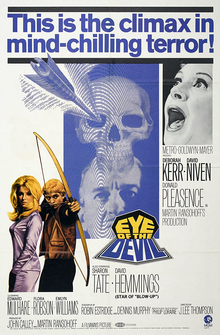
Eye of the Devil, also known by its working title 13 or Thirteen, is a 1966 British mystery horror film directed by J. Lee Thompson and starring Deborah Kerr, David Niven, Donald Pleasence and Sharon Tate. Adapted from the 1964 novel Day of the Arrow by Philip Loraine, the movie is set in rural France. It was shot at the Château de Hautefort and in England. The film's plot concerns a family inheritance of an estate shrouded by a mysterious and highly ritualistic veil of secrets, and the investigation that follows in trying to uncover the meaning of these ominous peculiarities.
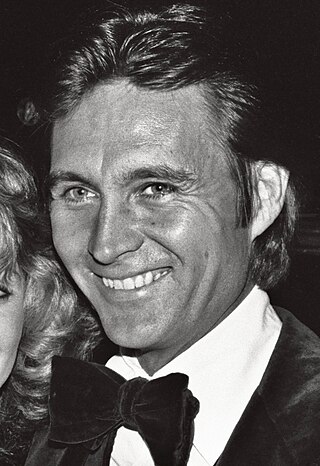
John Phillip Law was an American film actor.
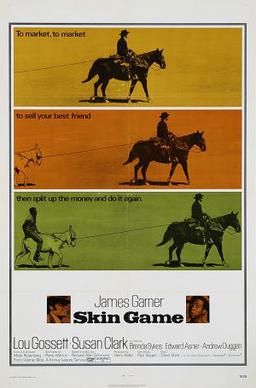
Skin Game is a 1971 American independent comedy western directed by Paul Bogart and Gordon Douglas, and starring James Garner and Lou Gossett. The supporting cast features Susan Clark, Ed Asner, Andrew Duggan, Parley Baer and Royal Dano.
Barry Shear was an American film and television director and producer.

Ghost in the Invisible Bikini is a 1966 American fantasy comedy film. It is the seventh and last of American International Pictures' beach party films. The film features the cast cavorting in and around a haunted house and the adjacent swimming pool.

Boy, Did I Get a Wrong Number! is a 1966 DeLuxe Color American comedy film starring Bob Hope and Elke Sommer. This film marked the first of three film collaborations for Hope and comedian Phyllis Diller, and was followed by Eight on the Lam in 1967 and The Private Navy of Sgt. O'Farrell in 1968.

Catalina Caper, also known as Never Steal Anything Wet, is a 1967 comedy musical mystery film starring Tommy Kirk. It blends the beach party format with a standard crime-caper comedy. It was shot on and around Santa Catalina Island, California.
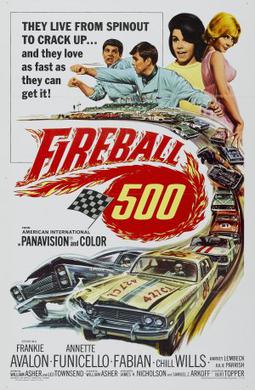
Fireball 500 is a 1966 stock car racing film, blended with the beach party film genre. A vehicle for stars Frankie Avalon, Annette Funicello, and Fabian, it was one of a string of similar racing films from the 1960s. Written by William Asher and Leo Townsend, and directed by William Asher, it tells the story of Dave Owens (Avalon), a stock car racer forced to run moonshine.

P.J. is a 1968 American neo-noir mystery film directed by John Guillermin and starring George Peppard.
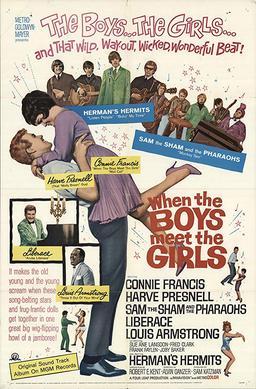
When the Boys Meet the Girls is a 1965 American musical film directed by Alvin Ganzer and starring Connie Francis and Harve Presnell based on the musical Girl Crazy and a remake of MGM's 1943 film Girl Crazy.
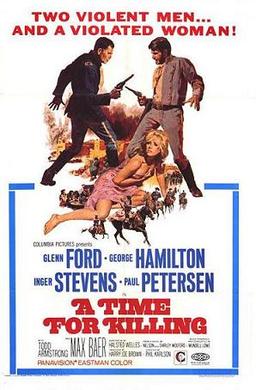
A Time for Killing is a 1967 Western film directed originally by Roger Corman but finished by Phil Karlson. Filmed in Panavision and Pathécolor, it stars Glenn Ford, George Hamilton, Inger Stevens, and Harrison Ford in his first credited film role.
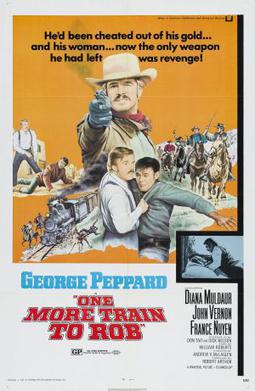
One More Train to Rob is a 1971 American comedy western film directed by Andrew McLaglen, starring George Peppard, and featuring Diana Muldaur, John Vernon and France Nuyen.
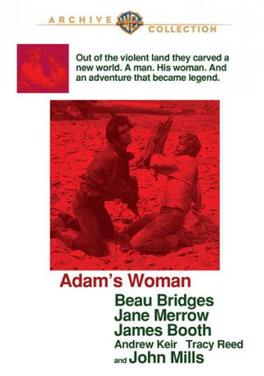
Adam's Woman is a 1970 Australian-American historical drama film directed by Philip Leacock and starring Beau Bridges, Jane Merrow and John Mills. It has been called a "convict Western".

The Thousand Plane Raid is a 1969 DeLuxe Color film directed by Boris Sagal and starring Christopher George and Laraine Stephens. Although claimed to be derived from Ralph Barker's The Thousand Plane Raid, the storyline of the film inaccurately portrays the first raid as an 8th Air Force mission while the actual attack was undertaken by 1,047 Royal Air Force bombers against the city of Cologne, Germany in May 1942.

Doctor, You've Got to Be Kidding! is a 1967 American comedy film directed by Peter Tewksbury and starring Sandra Dee, George Hamilton and Celeste Holm.
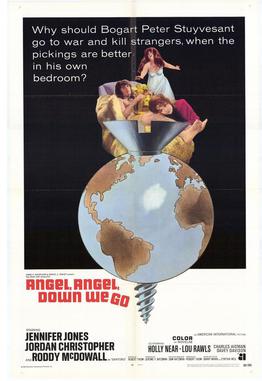
Angel, Angel, Down We Go, also known as Cult of the Damned, is a 1969 American film directed by playwright and screenwriter Robert Thom, his sole directorial credit. Thom based his screenplay on an unproduced stage play of the same title that he had written several years earlier as a vehicle for his wife, actress Janice Rule. The film was produced by Sam Katzman's Four Leaf Productions and distributed by American International Pictures.
The Loners is a 1972 American film starring Dean Stockwell and Gloria Grahame. It was the final film produced by Sam Katzman, who died the following year.
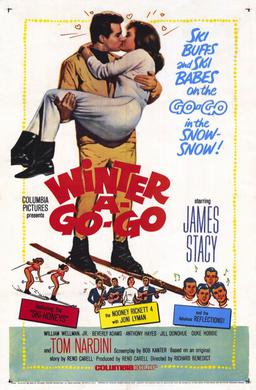
Winter A-Go-Go is a 1965 American comedy-drama film directed by Richard Benedict and starring James Stacy, William Wellman Jr., Beverly Adams, John Anthony Hayes, Jill Donohue, Tom Nardini, Duke Hobbie, Julie Parrish, Buck Holland, Linda Rogers, and Nancy Czar. The film was released by Columbia Pictures on October 28, 1965.
References
- ↑ Vagg, Stephen (9 December 2024). "Beach Party Movies Part 2: The Boom". Filmink. Retrieved 11 December 2024.
- ↑ Martin, Betty. (May 31, 1965). "Shulman's 'Upbeat' Bought". Los Angeles Times. p. C13.
- ↑ Martin, Betty. (June 29, 1965). "Columbia Signs Abby Mann". Los Angeles Times. p. c7.
- ↑ Martin, Betty. (July 23, 1965). "MOVIE CALL SHEET: Terry Thomas as a Star". Los Angeles Times. p. C12.
- ↑ "15 ARE INJURED IN MOVIE CRASH: Train Rams Flatcar in Filming of Scene". Chicago Tribune. August 6, 1965. p. 1.
- ↑ "12 HURT AS TRAIN HITS FILM FLATCAR: Singer Jan Berry, Director Barry Shear Seriously Injured in Chatsworth Collision". Los Angeles Times. August 6, 1965. p. 3.
- ↑ Martin, Betty. (August 11, 1965). "MOVIE CALL SHEET: Train Wreck Derails Film". Los Angeles Times. p. d12.